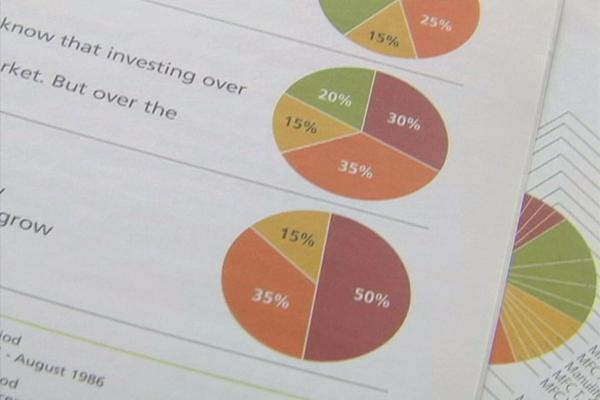Markets
Gates-backed study of shorter tuberculosis drug regimens kicks off in South Africa
An important test of new drugs that aim to treat tuberculosis infections more efficiently has begun in South Africa.
The Phase II clinical trial, sponsored…

An important test of new drugs that aim to treat tuberculosis infections more efficiently has begun in South Africa.
The Phase II clinical trial, sponsored by the Bill & Melinda Gates Medical Research Institute, will test five different antibacterial compounds across two new drug regimens in a bid to find a combo that shortens treatment times.
Tuberculosis is the biggest infectious disease killer in the world, with roughly 10.6 million new cases and 1.6 million deaths reported in the most recent count in 2021. The current treatment typically requires grueling 6-month courses of multiple antibiotics and has seen little change in nearly half a century.
The new trial aims to shave that treatment time down to at least four months and possibly as little as two months. It’s run by the Project to Accelerate New Treatments for Tuberculosis, or PAN-TB, a private-public partnership. Members include the Gates MRI, the Bill & Melinda Gates Foundation, the nonprofit TB Alliance, and four pharmaceutical companies — Evotec, GSK, Johnson & Johnson, and Otsuka Pharmaceutical.
 Charles Wells
Charles Wells“With current treatment taking at least six months, it’s a particularly high burden for low- and middle-income countries where TB is very common,” Charles Wells, head of therapeutics development at Gates MRI, told Endpoints News in an exclusive interview. “If we can come up with regimens that can do the job in half the time, what that would mean in these countries is huge.”
The trial is expected to enroll more than 500 patients with drug-susceptible tuberculosis, which accounts for most cases. Additional trial sites are slated to open in the Philippines this month and in Peru early next year.
Tuberculosis is one focus area for the Gates MRI, launched in Boston in 2018 to help kickstart new drugs, vaccines and diagnostics for diseases that typically afflict the poorest countries and are often overlooked by drug companies. Today the group has about 160 employees and is headquartered in Kendall Square, the heart of the biotech hub in Cambridge.
The trial announcement comes exactly six weeks after the Gates Foundation and Wellcome committed $550 million to fund a Phase III study of an experimental tuberculosis vaccine that was 54% efficacious at preventing infections from becoming deadly lung disease in an earlier study by GSK. The shot could become the first new tuberculosis vaccine in over a century if the new 26,000-person study is successful.
Towards newer drugs and shorter treatments times
Previous efforts to devise shorter tuberculosis treatments have failed. But, then in 2020, a study led by the CDC found that an optimized combination of drugs could treat the infection in just 4 months, although it doesn’t work for drug-resistant tuberculosis. Another study published earlier this year suggested that a 2-month treatment was effective for most patients but not all.
“Those successes, which are qualified successes, gave us reason to think that we can take even more potent classes of drugs and newer combinations and succeed,” Wells said.
The new PAN-TB study will initially enroll about 129 people to compare two experimental 4-month drug regimens to the standard 6-month-long treatment. Both experimental courses will contain three identical drugs: J&J’s approved therapy Sirturo, or bedaquiline, and two experimental compounds, Otsuka’s quabodepistat and the TB Alliance’s sutezolid.
Each regimen will contain a different fourth drug: either Otsuka’s Deltyba, also known as delamanid, or the TB Alliance’s pretomanid. Those compounds belong to the same antibacterial class and are currently used to treat drug-resistant tuberculosis but have different safety profiles. “There are some subtle differences between those two agents,” Wells said. “We’ll see where we land.”
If one of those experimental drug courses proves to be as effective or better than the standard care, it will move into a second stage of testing. About 400 patients will get the more promising of the two regimens for 2, 2.5, 3, 3.5, or 4 months, or the standard drugs for 6 months.
“We are hopeful that within two years or less, we will have an answer on stage one, then quickly pivot to stage two,” Wells said. “Then maybe after 2 to 2.5 years after that, we’d be in a position to know if we have a viable agent to take into Phase III. We’re going to try to keep it as short as we can get it, but things take a long time in tuberculosis.”
The study is designed to maximize success in a larger study down the road, Wells added. “We’re actually bringing in some of the endpoints and evaluation strategy that’s usually reserved for Phase III,” he said.
“If we are successful, whatever we come up with, we have to make available for patients,” Wells added, although the exact details of how that will work have not been determined. “But already, there is a commitment on the table from everyone involved that the endgame will be access to a successful regimen. Everybody has signed on for that.”
diagnostics
therapeutics
vaccines
antibiotics
medical
biotech
research
cdc
fund

Wittiest stocks:: Avalo Therapeutics Inc (NASDAQ:AVTX 0.00%), Nokia Corp ADR (NYSE:NOK 0.90%)
There are two main reasons why moving averages are useful in forex trading: moving averages help traders define trend recognize changes in trend. Now well…
Spellbinding stocks: LumiraDx Limited (NASDAQ:LMDX 4.62%), Transocean Ltd (NYSE:RIG -2.67%)
There are two main reasons why moving averages are useful in forex trading: moving averages help traders define trend recognize changes in trend. Now well…
Seducing stocks: Canoo Inc (NASDAQ:GOEV 5.43%), Ginkgo Bioworks Holdings Inc (NYSE:DNA -1.12%)
There are two main reasons why moving averages are useful in forex trading: moving averages help traders define trend recognize changes in trend. Now well…














